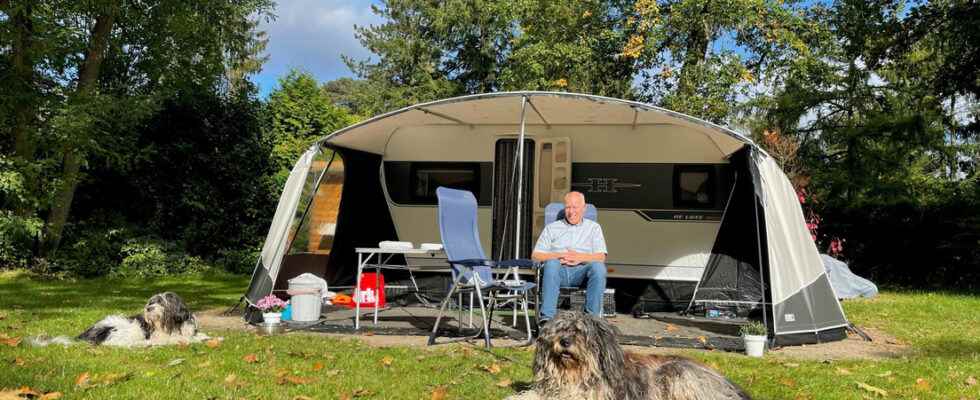PROVINCE OF UTRECHT – Last year you heard “Goeiemorgen” more often than “Guten Morgen” on camping sites in the province of Utrecht. There were proportionally fewer foreigners and more Dutch tourists. However, the total number of camping guests in the region increased strongly, according to figures published today by the CBS statistics agency. However, the regional tourist sector hopes to “Willkommen, bienvenue, welcome!” to say.
Campsites in the province of Utrecht received about 162,000 Dutch people last year. That was much more than the 79,000 in 2019 and 89,000 in 2020. The Dutch tourists were good for about 733,000 overnight stays. Utrecht camping owners saw the largest increase of all provinces.
“Dutch visit was good news for the short term”
Day attractions well attended
Director Michiel van der Schaaf of the Regional Office for Tourism Heuvelrug & Vallei agrees that our region received a remarkable number of domestic visitors. “In combination with the less warm summer, the daytime attractions were also well visited,” he said on Radio M Utrecht this afternoon. “It was a special year, because what you would almost forget is that until the end of May a large part of the leisure sector was locked. Due to the many Dutch holidaymakers and the weather conditions, we were able to make up for a lot.”
Throughout the country, more than 3.8 million Dutch people went to a camping site in their own country. The Utrecht sites actually only have a small share in this. Only Flevoland and Groningen were less popular. Most campers went to Gelderland (649,000) and North Brabant (443,000). Limburg and Zeeland will follow with 404,000 and 403,000 guests in 2021.
Employment and amenities
“Normally, recreation and tourism in this province is not a goal, but a means for a strong regional economy and a lot of employment,” says Van der Schaaf. “About 12,000 people on the Utrechtse Heuvelrug and in the Gelderse Vallei earn their money in this sector. And it is good for the facilities in rural areas and small towns.” Van der Schaaf heard a supermarket owner in Maarn say, for example, that he would never have opened a shop in the area without the holiday parks on Henschotermeer.
According to Van der Schaaf, the recreation market has been shaken up considerably by the corona measures. The number of foreign guests is still about 30 percent below the level of 2019. The fact that fewer Germans, Belgians and British came to our country, and that the Dutch celebrated their holidays closer to home, has of course everything to do with the travel restrictions. He is happy with the still full holiday parks, but also expects the market to normalize again.
Castles and country estates
“North Rhine-Westphalia, which is about the size of half of the Netherlands, and Flanders are a growth market for us,” explains Van der Schaaf. “If we want to ensure that our parks remain sufficiently filled in the coming years, we will have to go there again.” According to Van der Schaaf, our region has a lot to offer Germans and Flemish people. “We focus on certain target groups who, for example, are attracted to our castles and country estates. This is how we preserve heritage.”
According to Van der Schaaf, we don’t have to be afraid of a massive influx to our nature reserves. “The crowds during corona mainly came from people who live here and wanted to go outside for a while. Holidaymakers form a small group. They are also well guided with signs and programs, because they often do not know the way themselves. On a beautiful autumn day we send of course no people between 11 am and 3 pm to the Dorpsstraat in Lage Vuursche, because it will be too busy there. We come up with alternative programs for that. In this way we keep our sector vital, and the level of facilities and quality of life are up to standard.”
Do you have a tip or comment? Send us your news or photo via whatsapp or email.
